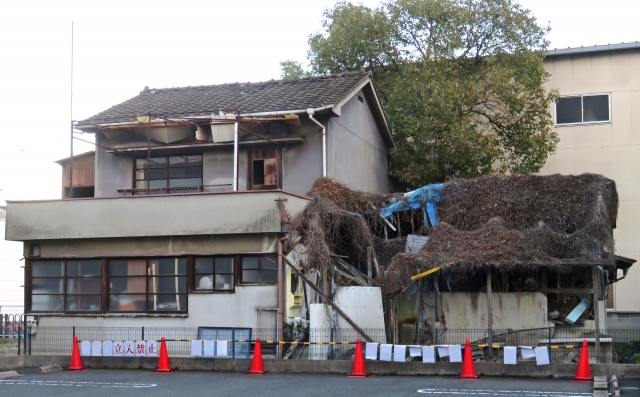Reactivating a frozen bank account
Dealing with numerous inheritance documents in Japanese can be complicated. The general inheritance procedures require documents:
- A series of family registers,「Subete no Koseki Tou hon」, from the birth of the deceased to his or her death
- Family register, 「Koseki Tou hon」, for all family members
- Certificate of Seal Certificate ,「Innkan Shoumei」, for all family members
- All family member's agreement on division of inheritance
- Notarized Will
- or, Handwritten Will with court certification
- or, Handwritten Will WITHOUT court certification
For foreign nationals, dealing with numerous official documents in Japanese Kanji can be complicated. It is recommended to consult with a professional.
Drivers License ; Trying to discourage elderly parents from driving…
The number of car accidents caused by elderly drivers is increasing. If you think it's about time, take action before an accident occurs. Let's protect our parents as soon as possible so that they won't become victims or causers of accidents.
- Surrendering driver's license
- Transferring or Disposing car ownership
- Termination of vehicle insurance or parking rental agreement
- Canceling vehicle registration and tax at the Land Transport Office
For Shinagawa and Nerima license plates, the cost is 9,000 yen and consumption tax, plus actual expenses at Automobile Registration office
A Will
A notarized will
When entering an international marriage, it is important to write a will for the sake of your children. The laws that apply to the inheritance of property held by foreign nationals in Japan vary depending on the situation, such as whether to follow foreign or Japanese law. It may be necessary to obtain instructions from a court of law in some cases, and the applicable law may differ depending on the nature of the property, such as land. To prevent unexpected troubles, it is advisable to ensure the inheritance method in advance through a notarized will. It is more reliable to create a legally clear notarized will than to keep a handwritten will in your bedroom. If the will is inappropriate or careless, it may not be legally recognized by the court process.
An executor
Another important aspect is to appoint an executor in advance. To prevent the deceased's wishes from being disregarded later, it is important to prepare for a reliable completion of the inheritance. Even if the situation changes, deciding on an executor in advance can minimize disputes among family members. This is a part of the Civil Code from the complete collection of Japanese laws.
- CivilCode 1007-2: When an executor of a will begins their duties, they must promptly notify the heirs of the content of the will.
- CivilCode 1011-1: The executor of a will must promptly create an inventory of the inherited property and submit it to the heirs.
- CivilCode 1012-1: The executor of a will has the right and obligation to perform all necessary acts to manage the inherited property and execute the will to achieve its contents.
- CivilCode 1012-3: The provisions of Civilcode644-647 and 650 shall apply mutatis mutandis to the executor of a will.
An agreement to divide the inheritance
It is not enough to simply discuss among the heirs on how to divide the inheritance. It is necessary to make the content reliable legally so that it can be explained to banks or courts. An agreement should include the following points:
- Agreement among all heirs on how to divide the property
- Confirmation that there are no other individuals with inheritance rights, such as illegitimate children, bigamous spouses, or hidden heirs Responsibility of the heirs who participated in the agreement, in case someone with additional inheritance rights appears later
- Agreement to hold further discussions in case additional assets are discovered later
- Proof of the identities of the heirs who participated in the agreement and their signatures
It is important to create a legally valid agreement that covers all of these points to ensure that the inheritance is distributed fairly and accurately.
An unoccupied family home
Such as after a parent has moved to a nursing home, renting out an unoccupied family home is one of the way to earn income while waiting to move in when after your returning to Japan or after your child's marriage. It is not difficult to find tenants for a property near a train station, and with some effort, it is also possible to find tenants in rural areas depending on the location. Landlords' rights are often restricted compared to tenants in current Japanese civil law, but there is a "fixed-term lease agreement" in which a home is rented for a certain period of time, and the tenant vacates the property at the end of the contract period, typically two years. In addition to the rental contract, a "statement of circumstances" explaining the background should be created, and a real estate transaction specialist who is affiliated with me will supervise the contract.

